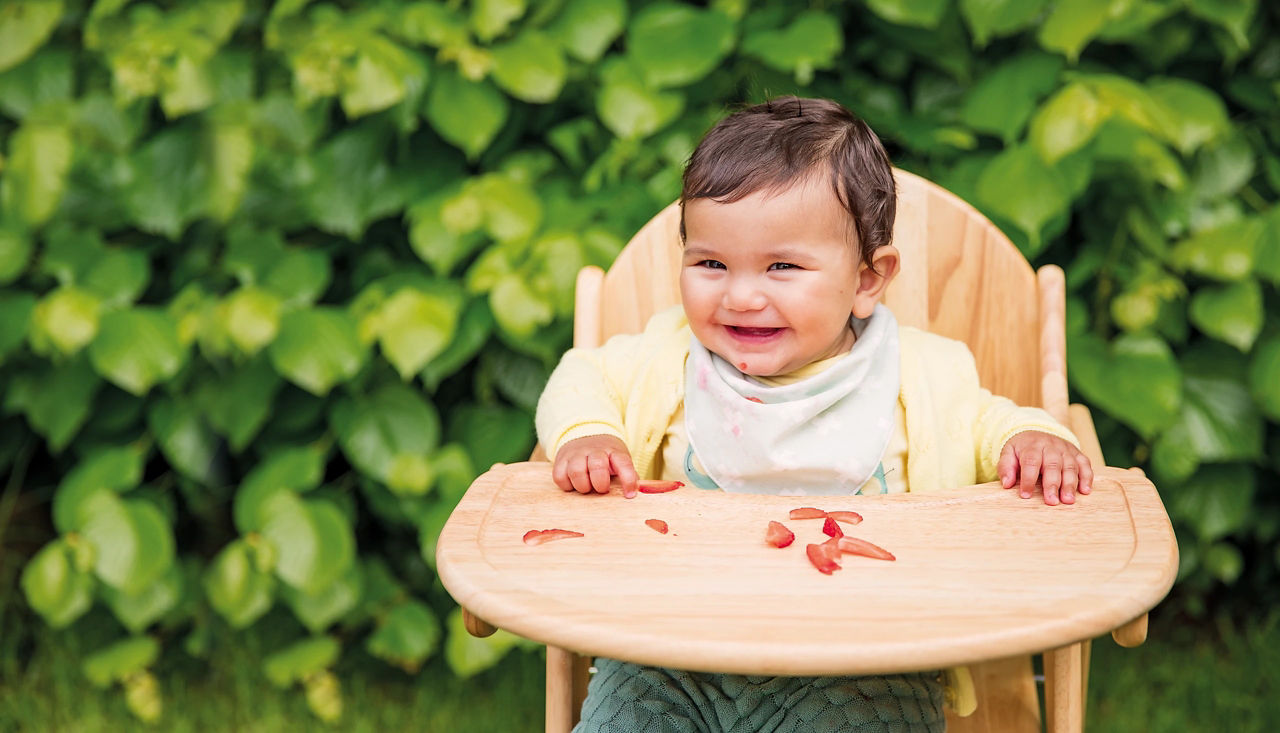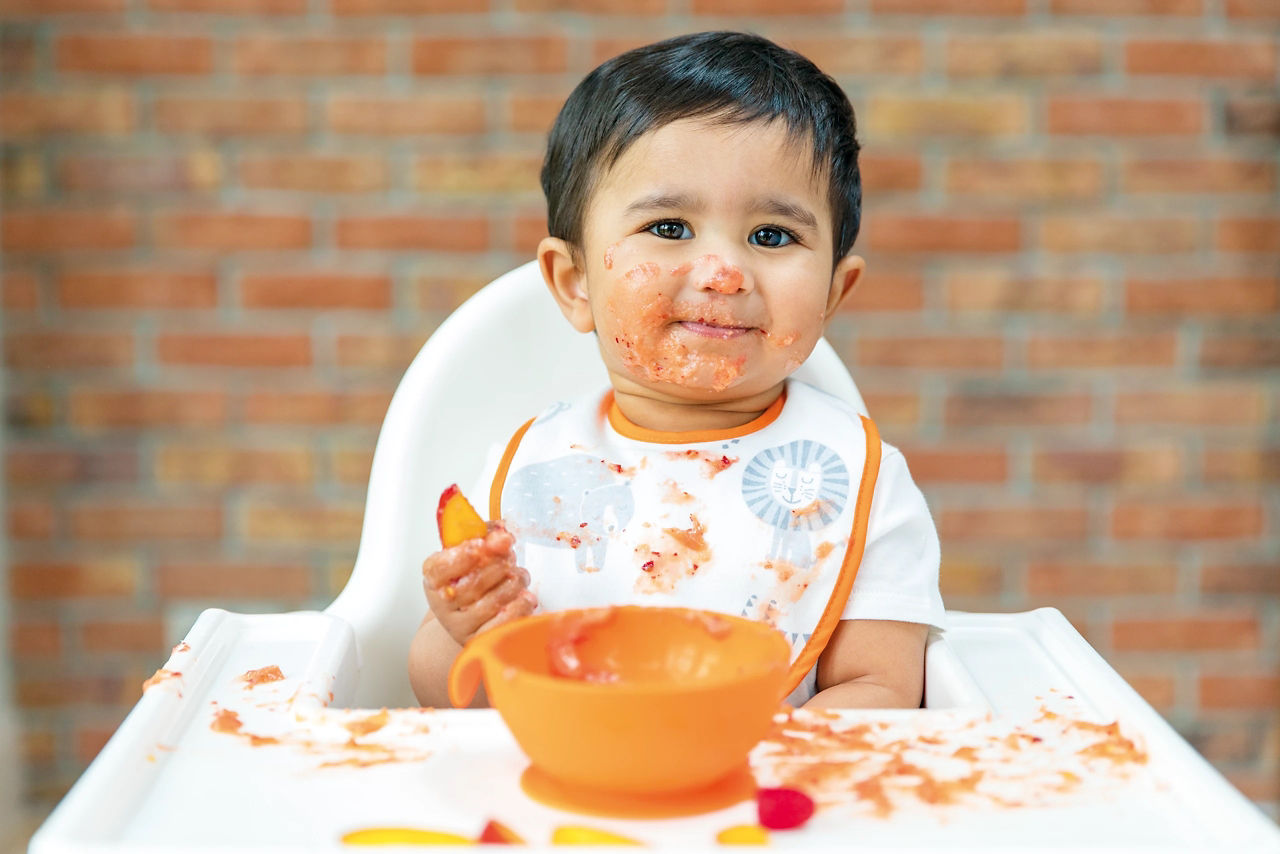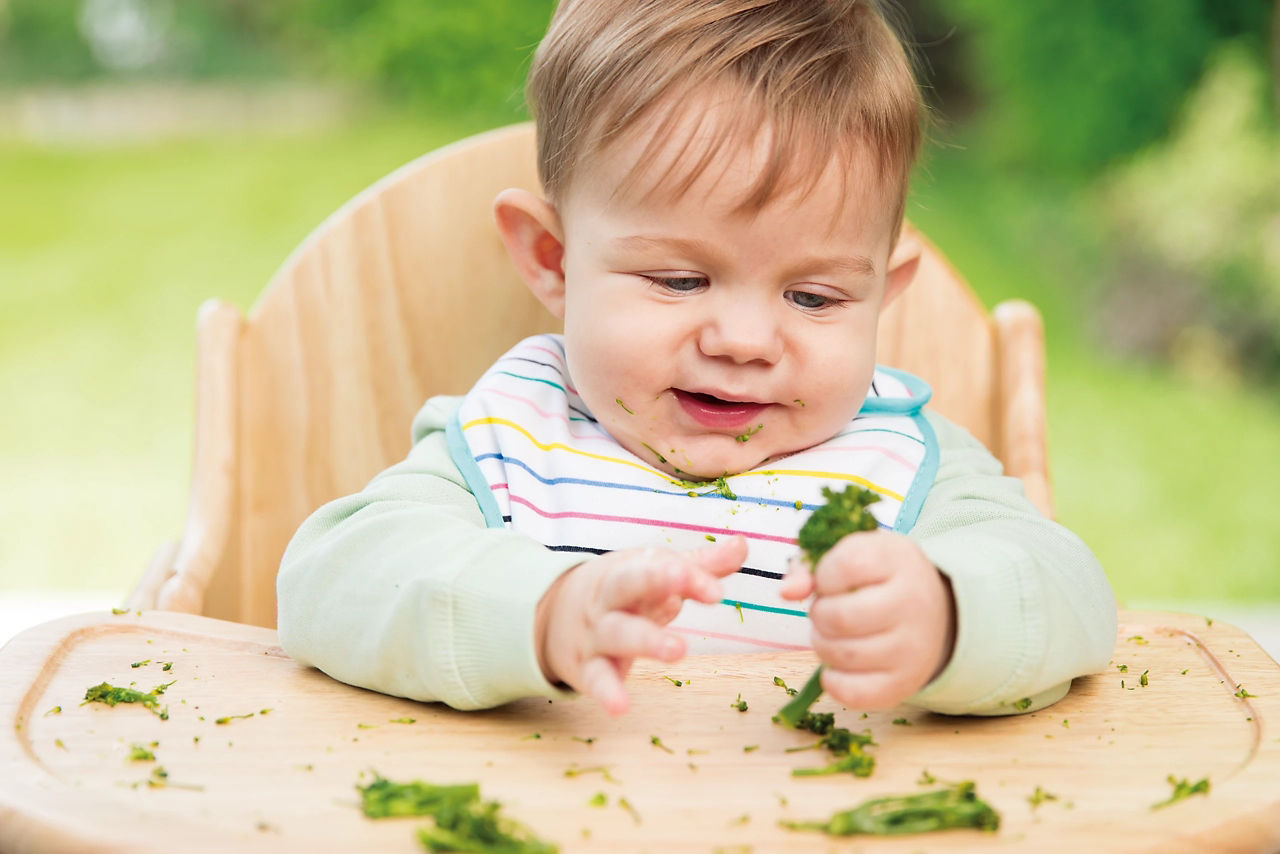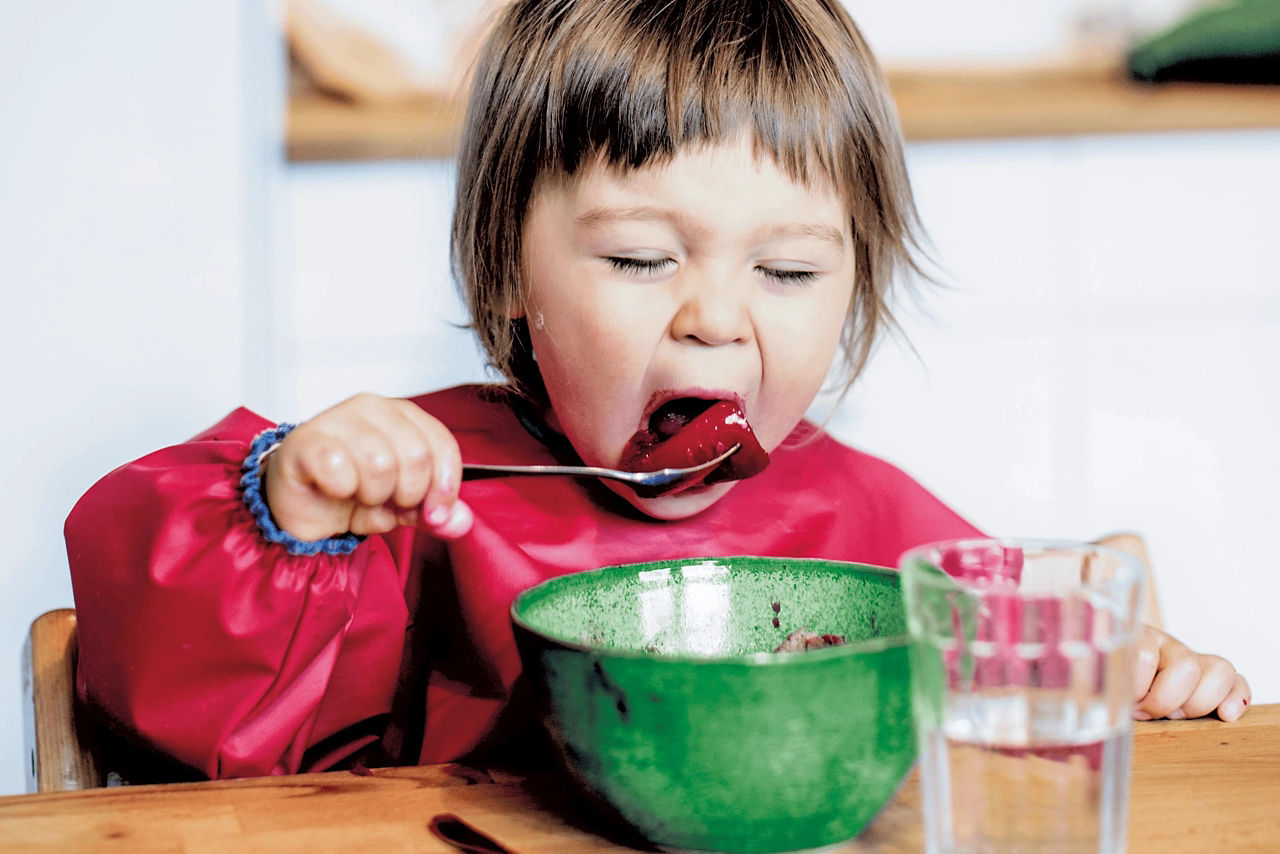Free weaning plan - Register here
It’s time for three meals a day!
Now your baby is becoming more reliant on solid foods to satisfy their appetite and fulfil their nutritional needs, it’s time to establish regular family mealtimes.
When your baby’s happy eating meals with a little more texture, it's also time to move on to meals with small chunks and lumps. Toddlers need fun and variety to keep them interested in their food and they're now ready to chew on more grown-up shapes and textures. Fun shapes will help keep them entertained as they become more independent and learn to feed themselves.
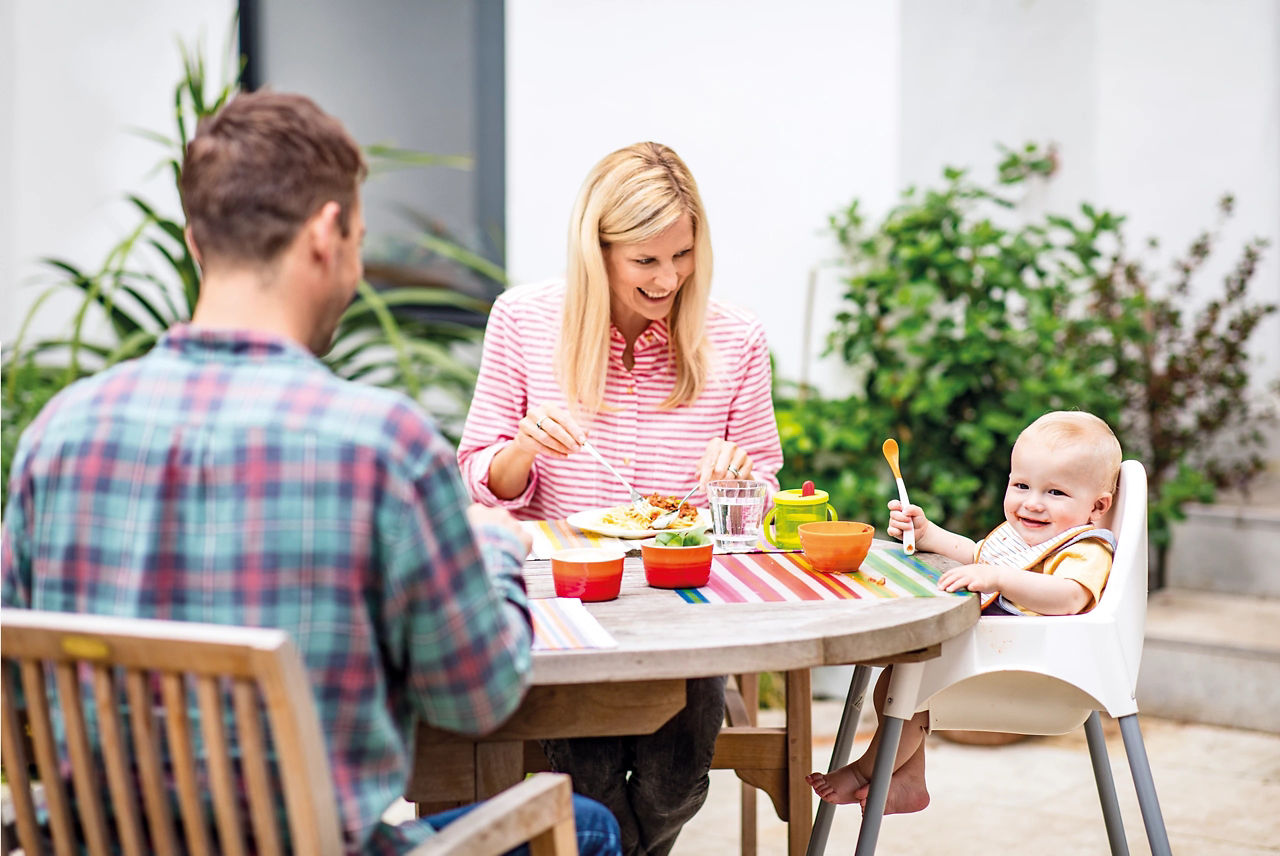
Eating as a family
Seeing their family enjoying meals can help your baby learn to love good food. It’s also a great way for them to pick up some good table manners! A regular breakfast, lunch and dinner will help your mini-muncher become familiar with your family routine and be more open to trying new tastes and textures.
Good for you, but not for your baby
While your little one might be looking more like a mini-adult than ever before, their nutritional needs are still very different from yours, and they’ll need a baby-friendly diet for some time to come.
You can include brown bread and other wholegrain foods, but not exclusively as they can be too filling for tiny tummies1. Low fat versions of milk, cheese and yogurt don’t contain enough energy for your baby’s needs. And processed foods like ham, bacon, sausages and shop-bought sauces and gravy are too salty – up to the age of 12 months, they need less than 1g a day, which is a sixth of the amount an adult needs2.
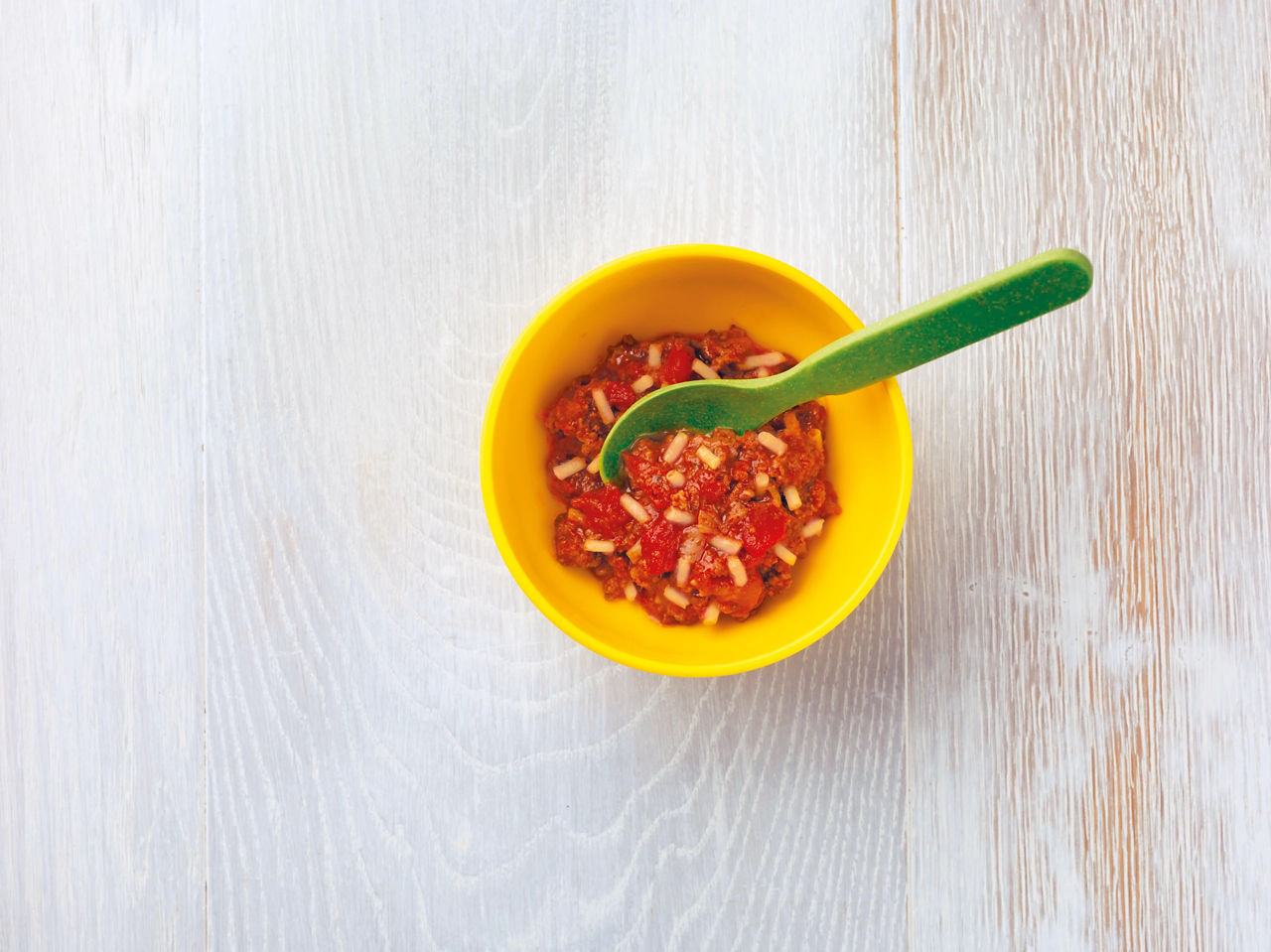
Even though your baby needs a different diet from you, there’s no reason why they can’t still enjoy your favourite family meals. If you’re cooking from scratch, simply leave out the seasoning, chilli, bacon or other adult-only ingredients from their portion and just add it to yours. That way they won’t feel like they’re missing out. Or why not take a look at our weaning recipes for a bit of inspiration.
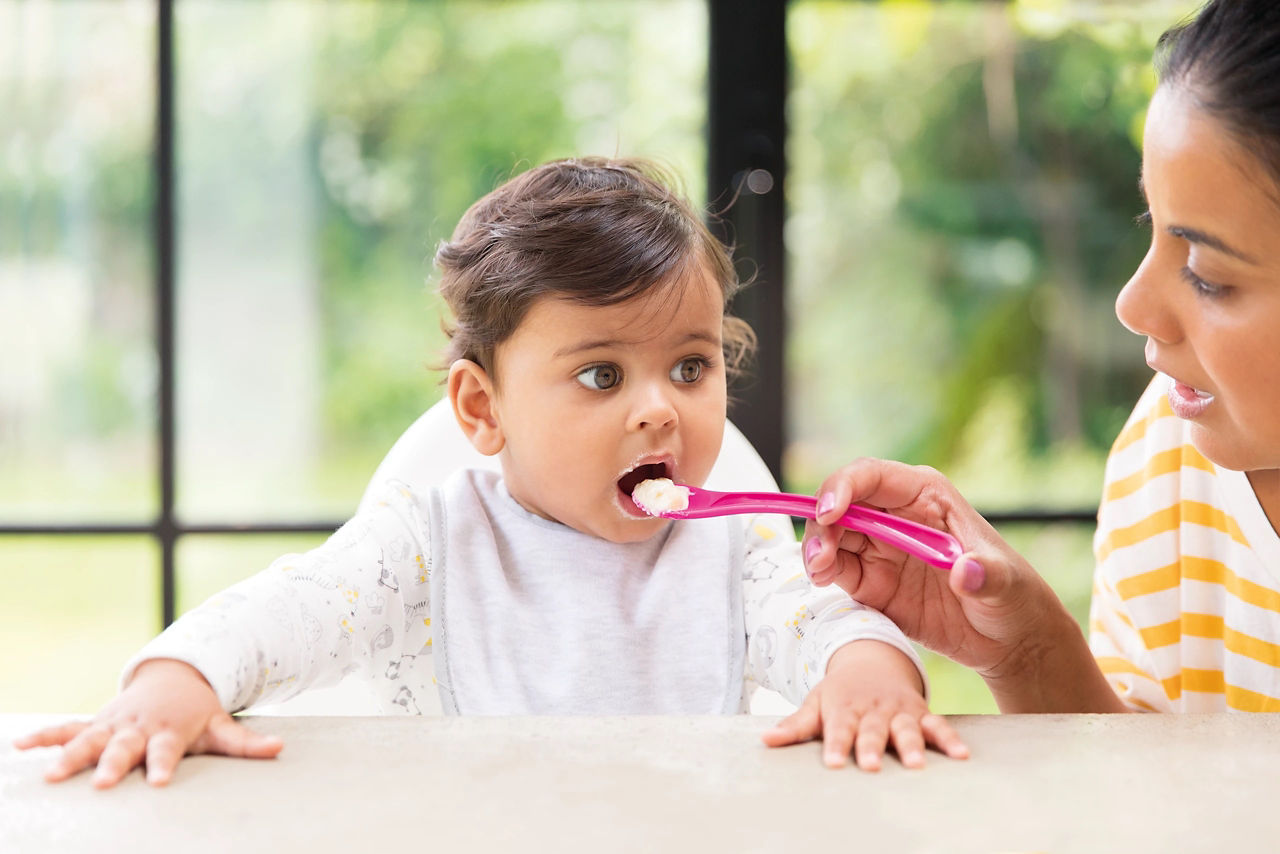
Establishing a routine: 5 helpful tipsa
- Routine is important for little ones, so keep to regular meal and snack times each day.
- Take food with you when you’re out and about so you can stick to the same mealtimes.
- Don’t plan to feed your baby just before naptime - it’s likely they’ll be too tired to eat.
- Don’t offer too many drinks of water during the day, as your toddler may be too full to eat when the time comes.
- Let your little one decide how much food is enough at each meal. They will know when they’re full and when they’re hungry and their intake of food should even out across the day.

Keep it fun
- Serve food in creative and interesting shapes and sizes to encourage a bit of play. If you have cookie cutters, use them to cut sandwiches into star, heart or animal shapes.
- If your baby enjoys pasta, look for interesting shapes like spirals and alphabet letters.
- Think of interesting ways to arrange and name food. Broccoli and cauliflower pieces look a bit like small trees so they can become a ‘Food Forest’.
- Decorate plates with smiley faces using different food for different features.
- You could even try an indoor picnic with a rug on the floor and snacks to share.
- Don’t worry about mess – it’s all part of the fun, and fussing too much could spoil your baby’s enjoyment
Get them involved
Little ones respond well to being involved in the process of shopping, cooking and choosing what they want to eat.
At the supermarket, ask them to spot easily recognisable items such as tomatoes or carrots, then congratulate them when they get it right. Remind them that the ingredient they’re eating is one they cleverly found in the supermarket.
Your baby’s too small to get really involved with cooking but they can watch and listen to you from their highchair as you peel and chop ingredients and talk them through preparing the meal. Ask them to choose which vegetables they’d like with their meal – or what shape pasta they’d like. They’ll enjoy being part of the decision making process.
 Do not leave your little one unattended when eating and drinking
Do not leave your little one unattended when eating and drinking
Treat your little one as an individual
Your baby will have already developed personal tastes about how they like to have their meals served. It’s nice to follow the way they like their food presented, without going to the extreme of cooking a completely different meal. Positive encouragement is always good, but it’s best to avoid giving food as a reward.
How much food should I offer? And how often?
Portion sizes will still be small but work towards offering them three meals a day. As always, keep an eye on your little one’s signals. If they turn their head away, or clamp their mouth shut, they might be trying to tell you they’ve had enough. Being able to control their own appetite naturally is a really important skill for your little one to learn. Worrying about portion sizes only adds stress to what should be a fun and exciting way for you and your baby to play and learn together. So it’s best to sit back, relax, and enjoy!
“Some days they’ll want to eat loads and be willing to try new things, and then nothing much at all. Try not to stress and get bogged down by amounts.”
Rosie, mum from Manchester
How much milk should my baby have at around 10+ months?
Milk is still an important part of your baby’s diet to ensure they’re getting the vitamins, minerals, fats and proteins that they need, so stick to your usual routine when it comes to milk feeds3. Read more about how much milk your baby should have during the different stages of weaning.
 Do not leave your little one unattended when eating and drinking
Do not leave your little one unattended when eating and drinking
Learning to use a spoon
Your little one’s independence will be growing at an astonishing rate – they’ll soon go from picking food up with their fingers to spoon feeding themselves pretty well. Practice really does make perfect, so it won’t be long before their coordination improves, and less food ends up on the floor. Be sure to heap on the praise when they do well.
A fun way to encourage independent eating is to give your baby a variety of foods that they can pick up and eat with their fingers. Offering a range of different textures and types of food will help keep mealtimes interesting, and get your little one excited about trying new things.
- NHS - Young children and food: common questions. [Online]. Available at: https://www.nhs.uk/conditions/pregnancy-and-baby/baby-food-questions/ [Accessed June 2020)
- NHS – Salt: The facts. [Online]. Available at: https://www.nhs.uk/live-well/eat-well/salt-nutrition/ [Accessed October 2019]
- NHS Start for Life – What to feed your baby – around 6 months. [Online]. Available at: https://www.nhs.uk/start4life/weaning/what-to-feed-your-baby/around-6-months/ [Accessed October 2019]
Last reviewed 04.08.2020
Do not leave your little one unattended when eating and drinking
Need free advice with a smile? Get in touch with our dedicated Care team.
Ask us a question (8am - 8pm Monday to Friday, 10am - 4pm Weekends)
Messenger
Contact us on Facebook (10am - 10pm, 7 days a week)
Call us
Call us on 0800 977 8880 (8am - 8pm Monday to Friday)
FAQs
Get answers to your most frequently asked questions
